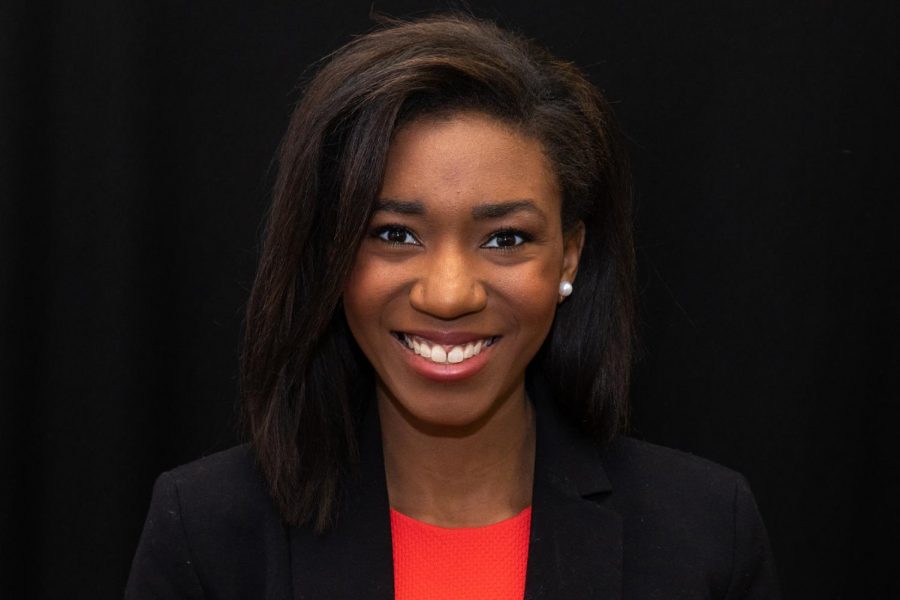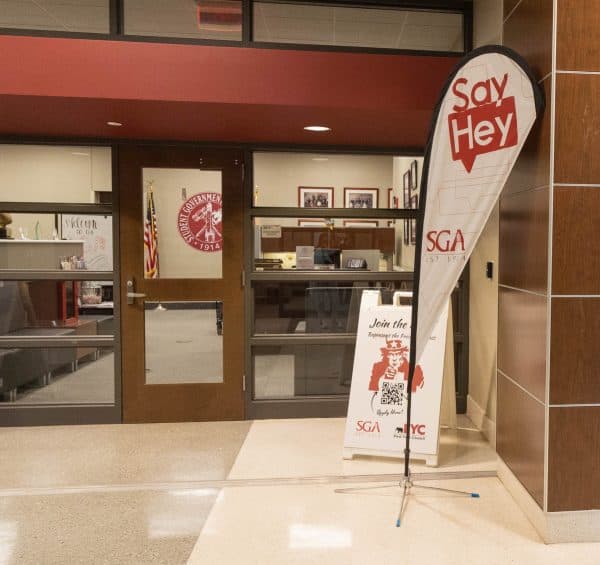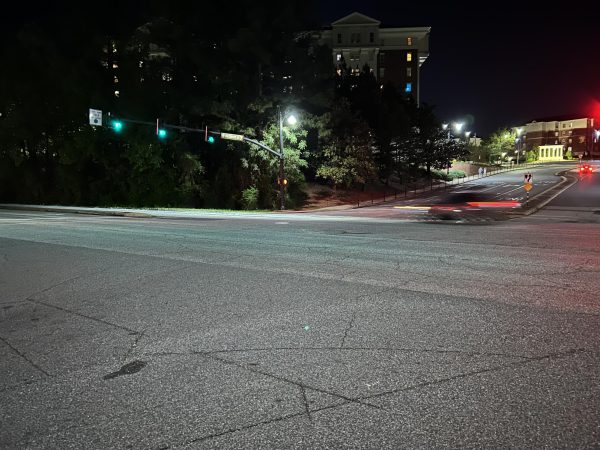Q&A with Caitlyn McTier, candidate for SGA vice president of diversity, equity and inclusion
March 2, 2020
Caitlyn McTier is a junior majoring in news media from Sylacauga, Alabama. She is running unopposed for the SGA vice president of diversity, equity and inclusion position.
Q: How did you originally get involved with SGA? Or if you’re not currently involved, what made you want to get involved?
I was a First Year Councilor, and then sophomore year I was deputy director of multicultural affairs in the diversity, equity and inclusion branch, and then this past year I served in the executive cabinet branch as chief advisor to the president for Harrison [Adams]. Coming to Alabama, I knew that student government was a route I wanted to take. I am from a family that is extremely politically engaged within my small town, and I’ve always been taught to give back and do what I can for the people around me. Especially as a minority woman and being underrepresented on campus, I felt like it was important for me to put myself in a space where there weren’t as many people that looked like me and pushing for that diversity and having a unique voice at the table.
My granddad was actually the mayor of our small town. He was the first and only African American mayor of Sylacauga, and so growing up he always just instilled in me the importance of wanting to give back and wanting to look at the way things can be changed within our community. But also all my family are educators, so I like to think of that as public service as well.
Q: What made you want to run for this position?
I have always been someone to be extremely focused on diversity, equity and inclusion programming. I actually served within the diversity branch my sophomore year as director, so by being in that branch and then last year serving as chief advisor to the president, Harrison Adams, too. So I’ve been able to see SGA from a variety of different spaces, but the thing I feel a lot of people forget about is that diversity is not just external programming, but something that we can internally work on in SGA by being more inclusive and making sure that voices are heard within our own space.
Q: What makes you the best choice for this office?
I think I have a very unique perspective because, of course, I am a minority woman. And I think what makes me special in a different way is that I have friends from so many different communities, and I’ve really learned to train my ear to listen to the issues they see and connect them together. From hearing so many perspectives, it’s made me feel as if I’m well equipped, as well as with the experience I have from being in SGA for three years. And so, for me, I just feel like I have a lot of those qualities and that it takes a lot of empathy to serve in a position like this, to be able to understand the experiences of other people and not being afraid to speak up for voices that feel like they’re normally being limited.
I serve as a part of Capstone Men and Women, so I get to, of course, see things from an administrative standpoint all the way to giving tours to prospective students. I’m also a part of our Blackburn Institute, so being able to be in that community by itself is already such a diverse space. Also, I’m within the Panhellenic Association and have so many friends who are a part of NPHC or not a part of Greek life at all, and I think that’s something we have to start working on moving into the future. It can’t just be a Greek voice.
Q: What’s the biggest problem you see on campus?
I think a lot of it is students feeling like their voices are not being heard. We, as a university, have a very different and unique and interesting history, specifically for our African American minority students. We see things like Foster Auditorium and we walk past it, and as wonderful as it is to commemorate Autherine Lucy and Vivian Malone and James Hood, we’re constantly reminded on a daily basis of the history that happened here 50 years ago. We’re still able to see so many of the issues of discrimination and racism and just not feeling like you’re being included, and that seems like, even though a lot of times people will talk about extremely specific programs, it seems to be the common link that students don’t feel like they’re being heard.
Q: What do you hope to change?
As chief advisor to the president, one program that I’ve already created is Bama Asks. This is something that we’ve just launched a few weeks back, so right now we’re in the testing phase and just starting to get it out there. It’s an online platform for students to submit things that are going on that they see and problems and concerns, and it’s a way for us as SGA to be able to address those problems. I think a lot of times people are intimidated when they come into the office because they’re like, ‘I don’t know these people. This is a little scary.’ So this is a way for people to send in what they need for us. It’s a great way to connect, but also we want to have that face-to-face interaction. And so the goal with this program, especially as we’re beginning to develop it, is to actually have a weekly booth that’s out in the Ferguson Center that they know every week on Wednesday, at whatever time it is, that SGA members will be there to talk with them about their problems.
Q: What’s one last thing you want voters to know about you?
I want people to know that I encourage. My job as vice president for diversity, equity and inclusion will not be done effectively if students do not speak and tell me what’s going on. I’m going to do my very best to be as present in a variety of different communities, but when I come and talk to different groups and ask for different opinions, to be candid, to be honest, to be emotional, to be mad, because I want to get the raw reaction of what students are feeling. I don’t want to be someone that’s encouraging students to use their voice and then, myself, limiting them. But I also want them to know that I’m fearless. I’m someone that I’ve had moments growing up where I felt bullied, where I felt like my voice was being belittled, and no one on this campus should feel that way. So if I have to be the person who has to go talk to administration or talk to different departments, then I’m willing to do that for our students.











